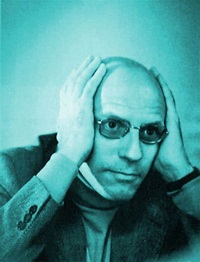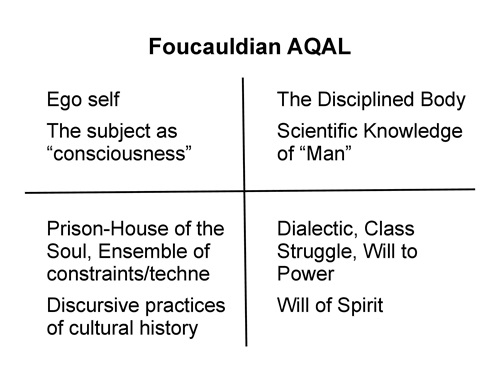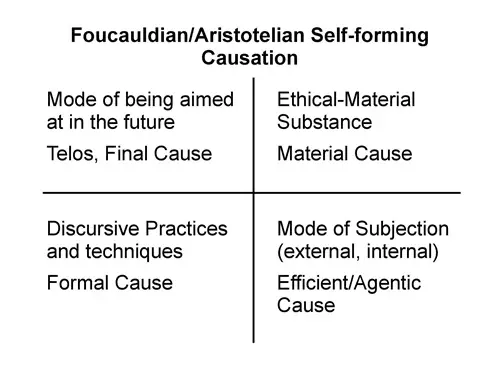|
TRANSLATE THIS ARTICLE
Integral World: Exploring Theories of Everything
An independent forum for a critical discussion of the integral philosophy of Ken Wilber
 Joe Corbett has been living in Shanghai and Beijing since 2001. He has taught at American and Chinese universities using the AQAL model as an analytical tool in Western Literature, Sociology and Anthropology, Environmental Science, and Communications. He has a BA in Philosophy and Religion as well as an MA in Interdisciplinary Social Science, and did his PhD work on modern and postmodern discourses of self-development, all at public universities in San Francisco and Los Angeles, California. He can be reached at [email protected]. Joe Corbett has been living in Shanghai and Beijing since 2001. He has taught at American and Chinese universities using the AQAL model as an analytical tool in Western Literature, Sociology and Anthropology, Environmental Science, and Communications. He has a BA in Philosophy and Religion as well as an MA in Interdisciplinary Social Science, and did his PhD work on modern and postmodern discourses of self-development, all at public universities in San Francisco and Los Angeles, California. He can be reached at [email protected].
SEE MORE ESSAYS WRITTEN BY JOE CORBETT
The Prison-House of the SoulThe Will of Spirit, and Foucauldian Ethics of the SelfJoe Corbett Michel Foucault' In Michel Foucault's Discipline and Punish he speaks of the soul as being the prison of the body, by which he means that the practices of modern subjectification, the means by which we become selves through various disciplinary mechanisms and procedures, has a central role in constraining, controlling, and shaping the body and its behaviors. Hence, for Foucault the soul is none other than the ensemble of practices and techniques that form our deepest sense of who we are, the unconscious habits of the socio-cultural and historical milieu in which we have our being in the world. Insofar as we are a soul at all, we are now if not forever bound to the historical and living context that has shaped us, which is the prison-house of the soul. Anyone familiar with Integral Theory will recognize this as being the Lower Left Quadrant of intersubjective meaning and the cultural habits we acquire through the repetitions and internalizations of social conditioning. More than just the persona of the ego-self we wear as a performative mask, this is where the deep identity of our soul-self with others is forged, the ballast of an ancient or distant memory-field that can only be described as deeply embodied and instinctively archetypal, the product of a collective alchemical process in the ritual enactments and discursive entrenchments of ancestral practices and habits into worldviews over years, decades, and even centuries. It is here, in the very structures of the ensemble of socio-historical discursive practices itself, that the prison-house of the human soul resides, with the human body as its captive. Of course, Foucault saw these discursive practices of the soul as always already operating within relations of power, that is, within the Lower Right Quadrant of Integral Theory. These relations of power are always inevitably in constant struggles of force and resistance, jockying for position within the interobjective realm of Spirit, the totality of dynamically related objects in the local social-field, which is the will to ever greater wholes and modes of being in the world toward ever larger and encompassing social-fields, where the will to power is the will of Spirit. Moreover these relations of power, the will of spirit in society and history, or what Hegel called the dialectic, what Marx called class struggle, and what Nietzsche simply called the will to power, are accompanied by, supported by, and instituted by forms of knowledge or truth claims in the Upper Right Quadrant. As is well known, Nietzsche saw forms of “knowledge” as expressions of value, either degenerate or noble, that originate from animal instinct, and power was the means by which certain ideas were able to express themselves and spread as the “dominant” but not necessarily superior ideas. Foucault takes this same idea and shows how our modern understanding of madness, criminality, and sexuality taken from the human sciences of “man” have been used to separate, discipline, and control people in society by using various practices of soul-forming to “normalize” them in the prison-house of the soul, which as I mentioned previously is simply the contingent ensemble of discursive practices within the modern socio-historical conjuncture. Hence, Foucault's theoretical model of the modern soul in its totality is an integral model of the normalized modern self and its socio-historical construction as a disciplined material substance (body), which uses the Lower Left Quadrant, the Lower Right Quadrant, and the Upper Right Quadrant to describe how the self of the Upper Left Quadrant is formed.
 Foucault demonstrates his uniquely integral approach to history once again in his second volume of The History of Sexuality: The Use of Pleasure. There he conceptualizes a field of ethics in which the conduct of ones conduct, or self-government, has four aspects to it, each of which correlate rather nicely to a quadrant of the AQAL. Moreover, each of these aspects also correspond to Aristotle's four causes, as I outlined in my essay “Toward an Integral Science with an Integral Aristotle” (Dec. 2020), giving us a Foucauldian-Aristotelian AQAL model of self-forming causation.
 In the Upper Right Quadrant is the ethical or material substance that is worked on in ethical practices of the self, which is the body, and in Aristotle this is the material cause, or the matter of things. In the Lower Left Quadrant are the practices or techniques of the self, what I have been calling in this essay the prison-house of the soul, the ensemble of constraints and technics used in forming the soul of the self, as applied to the body. In Aristotle this is the formal cause of things, the instructions and blueprints for how to do something. In the Lower Right Quadrant we have what Foucault calls the mode of subjection, the way in which one subjects oneself to ethical practices, for instance, whether by external force from the domination and compulsion of another, or by an internal motivation freely chosen by the individual. In either case a will to power through the force of applying the practice to ones body and behaviors occurs. Aristotle calls this the efficient or agentic cause, the thing that actually creates effects. And finally, in the Upper Left Quadrant is the mode of being that is aimed at for the self, whether that be one of purity, beauty, docility or whatever the normative vision of the future for the self may be, which Aristotle calls the telos or final cause. As with many of my other essays, this is just an introductory overview of how some intellectual traditions and ideas created outside an integral theoretical framework have many of the same categorical distinctions in their own conceptualizations as layed out by the AQAL, suggesting not only the integral nature of these theories but also the wide applicability of integral theory itself to many intellectual traditions and areas of research we might not have suspected. Further explorations and more in-depth considerations of these connections would likely be fruitful.
|